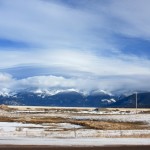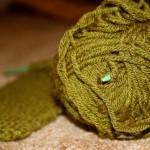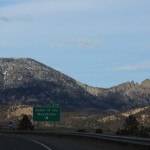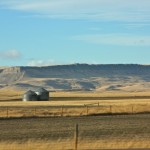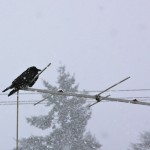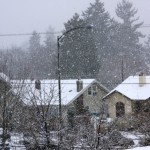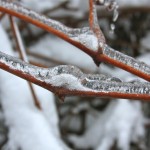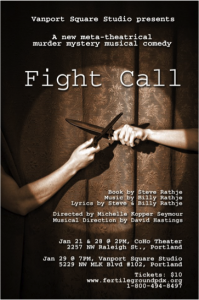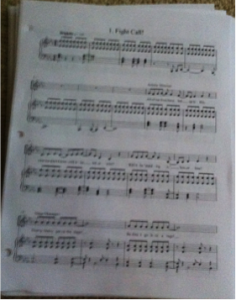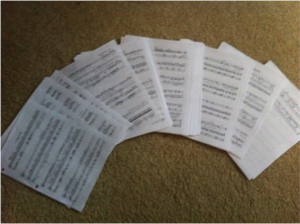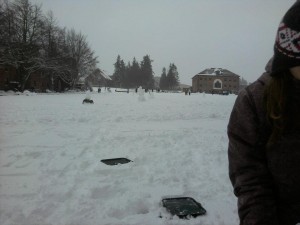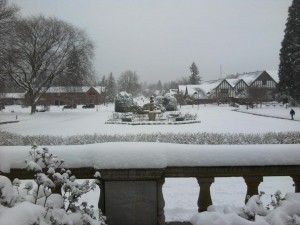[I believe we could do a better job as an institution at ‘marketing’ the reality of what our campus offers to its student body. This is not unusual for most colleges and universities across the country; marketing often takes place without much student input and does not always offer the whole scope the experience. However, I believe that prospective students should have a good grasp at what they’re walking into; the gap between form and reality can create disillusionment that probably contributes to retention/graduation rates and such. So for the rest of my time here, I’ll try to focus on different aspects of the Puget Sound experience for students, both prospective and current. All these posts are just from my point of view.]

While college itself is mosaic of stereotypes, generalizations and fantasized falsehoods, I think that the concept of “Greek Life” is perhaps the most hyperbolized and misunderstood. Especially at Puget Sound. The media depiction of Greek Life on college campuses by movies such as Animal House and in television series like ABC’s Greek, while entertaining at times (personally, I would take Animal House over the field of others any day), does not provide much insight into what Puget Sound’s Greek community offers students. For those looking for ironically-inspirational speeches by John Belushi or inter-sorority clashes of powder puff football in short-shorts, Puget Sound might not be the right school. Though I entered Puget Sound with the exact same stereotypes of Greek Life that almost all of us did [sidebar: there really is a cultural absence of solid literature on the college experience in general; if anyone feels like contributing something worthwhile, please do], I ended up stuck right in the middle of it. Three years later, as everyone is gearing up for another Rush experience and the inundation of hundreds of new members to the community, I smile considering the vast difference between my ideas of Puget Sound’s Greek Life going in and the reality I’ve learned to appreciate.

The image above is iconic for the typical college student; as an RA and a freshman myself, I can’t even begin to count the times that I’ve walked into a freshman dorm room and seen it hanging on the wall (for those few who don’t recognize it, it is John Belushi from “Animal House”). And I’m not going to sit here and try to ignore the fact that drinking happens in college, as well as the fact that Greek students are also college students. If you harken back to prepping for the SAT, I’m sure you can logically deduce the association between the above-stated facts. If you’ve read my posts before, you know that I’m a pretty straight-forward, honest writer (politically-correct has never been my forte). I do not intend to sugarcoat, glorify or misconstrue anything. And while I may not cover everything in terms of specifics, there are plenty of resources available to you if you have further questions and/or would like to hear other perspectives. Please don’t hesitate to check out the school website’s page on Greek Life and e-mail some of the student leaders (here are the links to the sorority leaders and fraternity leaders)
In this post, I’m not going to detail my personal experience like I did in the previous one, though. Instead, I’m going to skip to the general commentary without revealing which fraternity I’m in. I have two reasons for this, the first being that the intention of this post is not to describe an aspect of Greek Life at Puget Sound through a particular lens but instead to offer a general description that isn’t always readily available. The second reason, and perhaps the best, is that at Puget Sound it is not really fair to classify the chapters–fraternities and sororites–as having one stereotypical type of member (I’ll touch on this later). Thus, I’ll only go so far as to say that I am a member of one of the three fraternities on campus (in alphabetical order: Phi Delta Theta, Sigma Alpha Epsilon and Sigma Chi) and have been since the second semester of my freshman year. So without further ado..
The Basics: There are seven Greek chapters on campus, the three fraternities I listed above as well as four sororities: (one again in alphabetical order) Alpha Phi, Gamma Phi Beta, Kappa Alpha Theta and Pi Beta Phi. All have university-owned chapter houses across Union Street (which borders campus to the west) where non-freshmen members have the opportunity to live. Students living in Greek houses pay comparable fees to students living in Residence Halls on-campus and are required to buy a meal plan. Since the school owns the chapter houses, they are provided standard janitorial services that are nothing like the private-owned houses (where members have to do all the cleaning for themselves…you can guess what the inside of those houses look like). And unlike most college campuses, freshmen are not allowed to be recruited until the spring semester. Now onto the traits that make Greek Life at Puget Sound unique.
Trait #1: Delayed recruitment. The fact that freshmen are not allowed to be recruited/join until second semester allows them a chance to get to know other aspects of campus life and build their foundation entirely separate from Greek Life. That is not to say that Greek Life does not become part of many individuals’ foundation; rather, it simply means that everyone gets a chance to make friends and experience college as a non-Greek first (that’s also where the “buying friends” myth is incorrect at Puget Sound, in my opinion). Delayed recruitment probably accounts for why so many Greek members have multiple friends that are either in different fraternities/sororities and/or are non-Greeks. In my experience, regardless of how much pride and appreciation one has for his/her own fraternity/sorority, the Greek experience contributes to the college experience rather than defining it. For me, it definitely has been an important aspect that I have no regrets taking part in. However, there are other parts of my college experience that have nothing to do with Greek life that have also contributed to the experience. My guess is that most Greeks will tell you the same thing: Greek life is just a part of their college experience, but it’s an incredible part. The fact that students get to broaden their experience beyond Greek Life, though, can more than likely be attributed to the delayed recruitment that allows freshmen to wait a bit before diving into the Greek experience.
Greek stereotype/myth that joining a fraternity or sorority consumes your college experience and identity: At Puget Sound, false.

Trait #2: Greek members do just as well in school (if not better), and are just as involved (if not more) as the average student. Year-by-year GPA comparisons between Greeks and non-Greeks are almost always in close proximity with one another, with the most recent one available on the school website (Fall ’10) showing that Greek students did just a bit better than non-Greeks academically (3.19 to 3.17). Though Greek Life obviously is an extracurricular commitment and takes up a chunk of time each week, it definitely does not prevent students from continuing to perform well academically. And despite the time commitment, Greek students are as involved as any on campus. On top of that, numerous alumni and trustees were once a part of Greek Life; many of them love returning to campus to support their former chapters and get to know new members. Greek Life in many ways gives you more connections and motivation, helping Greeks continually contribute to Puget Sound’s extracurricular and academic life.
Greek stereotype/myth that joining a fraternity/sorority will hurt my grades and prevent me from getting involved in other things on campus: At Puget Sound, false.

Trait #3:The normalcy of Greek Life. A lot of media representations of Greek Life heighten the idea that Greeks are immediately identifiable based on their attitudes and personalities. While there definitely are some Greek members who conform to these stereotypes, most students on campus can hardly tell the difference between a Greek student and a non-Greek unless someone is wearing their letters. Because students at Puget Sound are usually involved in numerous things and have multiple friend groups, identifying who is a Greek and who isn’t (along with which fraternity/sorority one may be in) is not the easiest task. Part of my reason for mentioning this is to underscore that you don’t have to join Greek Life to have an incredible experience at Puget Sound. It’s just one of the paths available to students, and I definitely have many friends who have avoided it altogether and still really enjoyed their time here. And while some aspects of Greek Life are exclusive due to the nature of the system, most times the system blends well and is open to the rest of campus. A large number of students join Greek Life at Puget Sound, but an even larger number don’t. And that’s totally fine.
Greek stereotype/myth that if one doesn’t join Greek Life, he/she won’t be able to remain friends with anyone who does: At Puget Sound, false.

Hopefully, you didn’t read this as an advertisement about Greek Life on Puget Sound. Every fraternity and sorority has its strengths, and it also has its weaknesses. Similarly, Greek Life has its strengths and its weaknesses as a collective community. Different students will tell you different things about Greek Life at Puget Sound, so please don’t take this post as the authoritative perspective. It’s just one of many.
Though each fraternity/sorority has its own unique qualities, as a community Greek Life strives to push students to reach their potential, both as individuals and as a collective. For that, I’m grateful and proud, and hopefully you’ve gleaned at least that much in reading this.
(And yes, these are rather long posts. My apologies for that, but I just didn’t want to miss anything.)
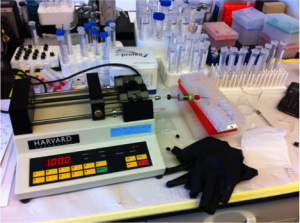 Now for a slight change of pace. After rehearsing my musical, I switched to a more left-brain-oriented project for the second two weeks of my winter break and worked in a biochemistry lab at the Oregon Health Sciences University where I had worked for the past three summers.
Now for a slight change of pace. After rehearsing my musical, I switched to a more left-brain-oriented project for the second two weeks of my winter break and worked in a biochemistry lab at the Oregon Health Sciences University where I had worked for the past three summers.
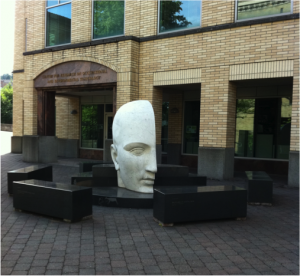


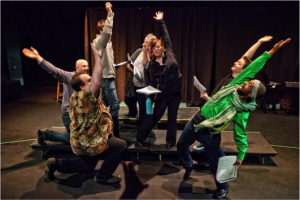
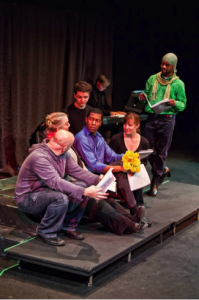

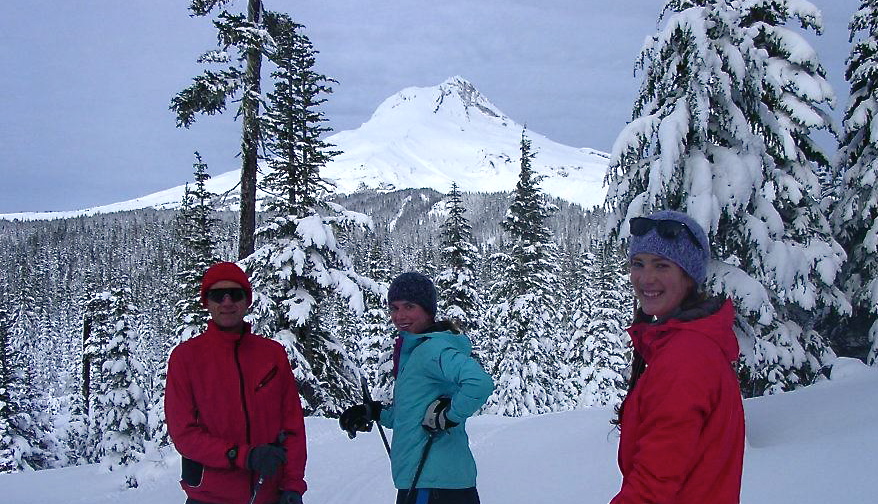
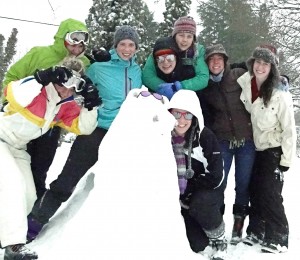
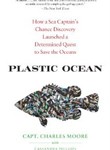 Sea”, talked about the plastic that is accumulating in the North Pacific Gyre, due to oceanic currents and wind patterns. I was struck by his stories of fish, invertebrates, and coral using the plastic debris as habitat. During his research, he found coral reef in the middle of the open ocean, nowhere near a reef! It was really interesting to see the effect that we as humans can have on the natural world.
Sea”, talked about the plastic that is accumulating in the North Pacific Gyre, due to oceanic currents and wind patterns. I was struck by his stories of fish, invertebrates, and coral using the plastic debris as habitat. During his research, he found coral reef in the middle of the open ocean, nowhere near a reef! It was really interesting to see the effect that we as humans can have on the natural world.

